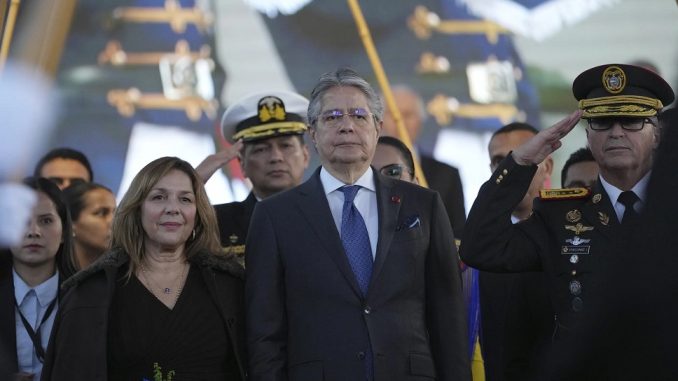
By Alberto Giovanelli
Last Sunday, February 5, the Ecuadorian people participated in elections to choose governors, mayors, the formation of the Council of Citizen Participation and different minor positions; simultaneously, at the initiative of President Lasso, a referendum was proposed which revolved around different points related to security and others to political and institutional reforms.
The electoral result was overwhelming, the official proposals for the referendum were rejected in their entirety. In the consultation, with which Lasso sought to reinforce his authority, the No vote was imposed in all options. The result is not the result of a “deep reflection” on the proposed points, but of the generalized repudiation to the government that promoted them.
For elective positions, there were almost no candidates promoted by Lasso and in the few places where CREO (ruling party) was able to present itself, its results were very poor.
The Citizen Revolution Party of former president Correa, was the organization that capitalized on Lasso’s loss of prestige and disintegration. In the case of Guayaquil, perhaps the biggest surprise took place, since Correism managed to break with more than 30 years of government of the Social Christian Party. Revolucion Ciudadana also won in Quito, and Azulay, Imbabura, Manabí, among other regions of political and economic importance.
For its part, the indigenous party Pachakutik, won again several governorships such as in Bolivar, Santa Elena, Tungurahua, obtaining important results mainly in the coast and the highlands.
Lasso and a foreseeable disaster
The neoliberal initiatives of Lasso’s government, which were confronted in 2022 by a strong popular mobilization, have now their expression in the electoral field.
Lasso managed to survive in 2022, but now he has been joined by numerous cases of corruption that are being investigated in Congress itself.
We must also mention the exponential increase of political and social violence. This campaign also leaves the balance of 5 candidates assassinated in different circumstances that add to the daily deaths at the hands of drug trafficking and even the prison massacres that occurred throughout last year.
Correism, an instrument that turns more and more towards the right.
Once again, as is already happening with Boric in Chile, Lula in Brazil, Petro in Colombia or the Bolivian MAS, in the absence of alternatives that propose a fundamental change, the mass movement uses what it understands to be the most effective element to reject the officialisms in general and in this case, Lasso in particular.
That is why we do not trust Correaism and its siren songs nor in its messianic triumphalism at all, what prevailed in this election is the rejection of Lasso, not the trust in Revolucion Ciudadana that turns more and more to the right, as Correa himself recognizes in recent statements “Latin American integration is an unavoidable destiny that goes beyond ideologies”; this statement is the continuity of what his former candidate Arauz announced, about deepening economic relations with the US.
The “tail wind” that at the beginning of the 2000’s allowed Latin American governments to grant some reforms based on the increase of raw material prices and that gave rise to favorable expectations to the governments that implemented those lukewarm changes concludes with the 2008 imperialist economic crisis in Latin America, from which the intentions of improving “capitalism” vanished.
Correism is a faithful example of this process; supported by large majorities at the beginning of his administration, he ended it in confrontation with the indigenous populations and repudiated by multiple sectors of workers, among which were those of the health sector and teachers. We must also add that the government of “false progressivism” was crossed by numerous cases of corruption and… the cherry on top: the appointment of Lenin Moreno, Correa’s vice president as his successor. Lenin Moreno, at the beginning of his administration, took a clearly neoliberal course and of absolute abandonment of the expectations of change, which generated the massive mobilizations of 2019/2020 that were about to defeat the government enthroned by Correa.
Correa is no stranger to a process that seems to be the same in almost all the supposedly progressive governments of Latin America, which emerge with a discourse of change and improvements to capitalism and then turn to the right with agreements with the business sectors and imperialism itself to “guarantee governability”. This search for consensus ends in confrontations with the very social base that supported them and agreements with business sectors such as the one reached with the very powerful businessman Aquiles Alvarez, winning candidate in Guayaquil for the “Citizen Revolution”. Once again we reaffirm that until the revolutionary left is able to advance in an independent alternative, of workers, indigenous peoples, peasants, students and the poor people, Ecuador will oscillate between neoliberal governments and false progressivism that condemn us, one or the other, to a permanent postponement in the resolution of our needs.








